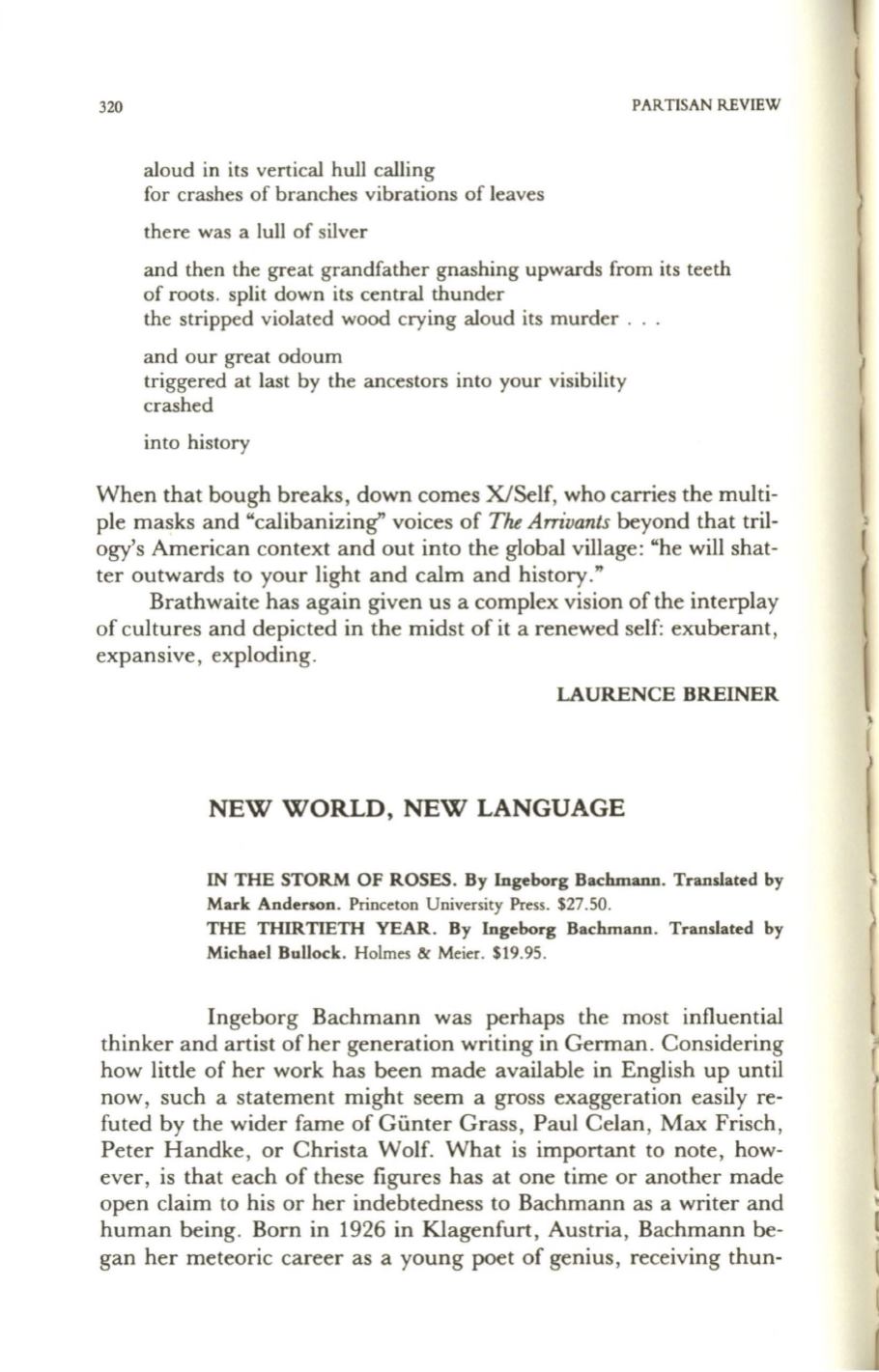
320
PARTISAN REVIEW
aloud in its vertical hull calling
for crashes of branches vibrations of leaves
there was a lull of silver
and then the great grandfather gnashing upwards from its teeth
of roots. split down its central thunder
the stripped violated wood crying aloud its murder .
and our great odoum
triggered at last by the ancestors into your visibility
crashed
into history
When that bough breaks , down comes XlSelf, who carries the multi–
ple masks and "calibanizing" voices of
The Arrivants
beyond that tril–
ogy's American context and out into the global village : "he will shat–
ter outwards to your light and calm and history ."
Brathwaite has again given us a complex vision of the interplay
of cultures and depicted in the midst of it a renewed self: exuberant,
expansive , exploding.
LAURENCE BREINER
NEW WORLD, NEW LANGUAGE
IN THE STORM OF ROSES. By Ingeborg Bachmann. Translated by
Mark Anderson.
Princeton University Press.
$27.50.
THE THIRTIETH YEAR. By Ingeborg Bachmann. Translated by
Michael BuUock.
Holmes
&
Meier.
$19.95.
Ingeborg Bachmann was perhaps the most influential
thinker and artist of her generation writing in German . Considering
how little of her work has been made available in English up until
now, such a statement might seem a gross exaggeration easily re-
futed by the wider fame of Gunter Grass , Paul Celan , Max Frisch,
Peter Handke, or Christa Wolf. What is important to note, how-
ever, is that each of these figures has at one time or another made
open claim to his or her indebtedness to Bachmann as a writer and
human being. Born in 1926 in Klagenfurt, Austria, Bachmann be-
l
(
gan her meteoric career as a young poet of genius, receiving thun-


